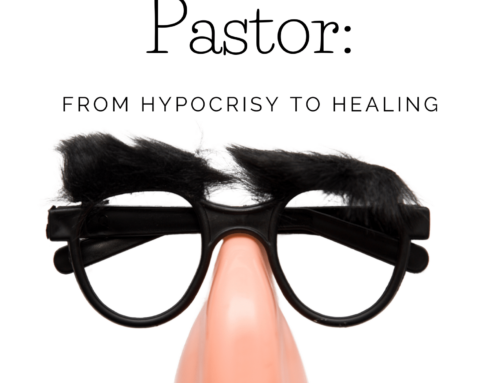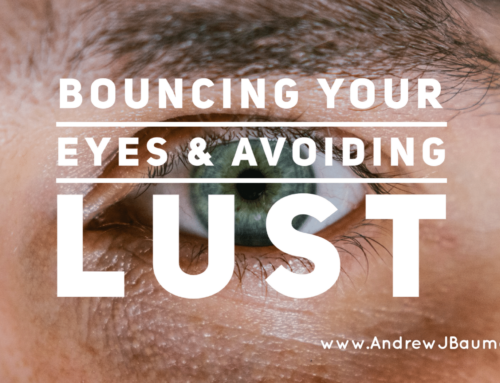It has come to my attention that folks in the abuse/trauma recovery community have questioned my stance on masturbation and somehow have labeled me as the “pro-masturbation” guy and thus not correct in my view of “proper” recovery practices.
I have heard of folks not wanting to recommend my men’s recovery programs because of it, (which is so sad because the topic rarely ever comes up, and truly men are transforming regularly and healing deep wounds in such stunning ways). I have heard of other advocates questioning my authenticity in the space as a male voice because of it, and people wondering about reading my “new” book in case it promotes this view of masturbation. So, let me make my position more clear:
Masturbation, within sexual addiction recovery, is not helpful in your recovery or with rebuilding trust with your partner. Reintroducing it (with your partner) into a healthy committed relationship takes years and years after core wounds have been healed after behaviors have long since changed, and safety and stability have been firmly re-established. Many folks will never be able to have a healthy relationship with masturbation and should not partake.
For those who are addicted to sex to heal you must change your relationship with masturbation, disconnecting it from porn use, non-consensual fantasy, isolation, and objectification. Your #1 goal is for safety and stability with your partner. That includes having no more secrets or any type of isolation in your sexuality, which obviously, masturbation normally is.
I still believe in the question I asked here, What about Masturbation? – Andrew J Bauman, What if pleasuring ourselves could actually bring pleasure to God? But that is not some all-encompassing blessing that masturbation is helpful, and healing, I would actually argue the opposite: In most circumstances, it is not helpful and potentially harmful.
The idea that pleasuring ourselves could actually bring pleasure to God is only true when masturbation is redeemed within a relationship; that is, separate from addiction or compulsive behaviors, and only in a safe and trusted relationship with no secrets. No secrets mean it is talked about with your partner. Perhaps one partner is traveling, or unable to connect sexually. There must be open discussion and ongoing dialogue. For example, this might include discussing what sexual act with your partner you will be thinking about. Any fantasies must include “consent,” and must not include “sinning” with improper fantasy or lustful thoughts of another: fantasies should be focused on acts with your partner in which you have their consent. Both partners must be part of the discussion the entire time. The relationship cannot bear any secrets or hidden behaviors. Expression of sexuality should be focused on becoming one, even if sexual intercourse cannot happen.
Healthy masturbation and masturbating to the glory of God is so rare it’s nearly non-existent, but it can be attained under certain circumstances. Even then, it still would never be the ideal, only a rare exception. The goal of healthy sexuality is to find its expression in a committed, loving, safe relationship! When sexuality is expressed by yourself in isolation, that “smells” more like pornographic behavior and can keep your brain in an addictive cycle.
At the beginning of the healing process, any porn (of course) and masturbation must be off the table for at least 90 days for the brain to begin to heal from its trauma. (Check out Your Brain on Porn by Gary Wilson and Dr. Patrick Carnes’s work.)
Yes, I do have somewhat of a nuanced stance on the issue. The fact that I am not using absolutist language that declares masturbation to be always “good” or always “bad” makes it more difficult to communicate clearly. Nevertheless, I have a more nuanced stance because I believe it to be the most intellectually, and morally honest. But no, I don’t think my stance is controversial or against best practices in the abuse/trauma/sexual addiction recovery realm.
The following is an excerpt from my book the “Psychology of Porn”
What About Masturbation?
It’s a common question I get asked and a continuous debate within Christian circles: What about masturbation? Is it okay to masturbate, or not? If only it were that simple. The typical dialogue within the church of “yes or no” or “good vs. bad” lacks the maturity and nuance needed to discuss and understand this topic. Good Christian men and women are confused and wanting to please God. What if pleasuring ourselves could actually bring pleasure to God? Is that even possible? There is much to unlearn and relearn on how to masturbate well. You may have grown up with an understanding of masturbation as the “forbidden fruit”, or a sin just as reviled as murder. You may have heard myths of going blind or growing hair on your palms. Most likely you heard nothing at all. Silence. And the silence was enough for you to to learn to say nothing, but feel everything. This is the origin of searing shame. The shame becomes unbearable for those of us who want to please God, yet can’t resist bringing ourselves pleasure. Instead of being shamed for wanting pleasure and enjoying pleasuring ourselves, we need to learn to masturbate in a healthy way.
Unlinking Porn & Masturbation
Many folks misuse masturbation. Some use it compulsively as form of escape, for others it is a way to dissociate from their present struggles and/or overwhelming joys. We must begin to unlink porn and masturbation in order to reclaim a better relationship with our sexuality; this can take time. Patterns of masturbation have been linked to objectification and fantasy which can be difficult to break. If you have engaged in the same rituals for the last two decades, it’s probably safe to say you wouldn’t be able to make these changes overnight. Masturbating differently will take significant work and effort on your part.
Fantasy Structures
While it can be simple to stop looking at erotic images on the internet, the hardest healing work is beginning to engage your fantasy structures and thought life. Christian folks call it “taking every thought captive”, the world of psychology calls it “thought stopping”. The sin is not in the act of masturbation but in the fantasy. Our thoughts can be perverse and laced with objectification, and this is the darkness that we must flee, not the act of masturbation itself. Can you masturbate without debasing fantasy? If not, then don’t do it; you’re not ready yet to reintroduce healthy masturbation into your life. There has to be a significant and consistent break from your use of porn and a rewiring of your brain and fantasy life. After time has passed, and you have worked hard to allow your brain time to heal, reworked your fantasy structures and how you honor women in your thought life, I believe you can reintroduce healthy masturbation within proper boundaries. If you are single, you will have to be aware of the difference between healthy masturbation vs. the patterns of how you have engaged in the past.If you begin to pleasure yourself and find your brain drifting into fantasy, stop. If you find yourself using masturbation to run from emotion, stop. Masturbation must be used to enhance reality not escape from it. Within these guidelines, it will not be compulsive and will be less frequent because of the boundaries of health you have put in place.
Breaking Isolation
One reason masturbation can be such a tricky part of the healing process is that is so isolating. This aspect itself can be triggering. Part of breaking the cycle for folks who are married is beginning to be honest with your partner about your relationship to masturbation. Your sexuality is no longer solely your own; it is now shared. If you have gotten to the point of being able to masturbate well without fantasy and escape, you can incorporate it into your sexuality with your partner.






